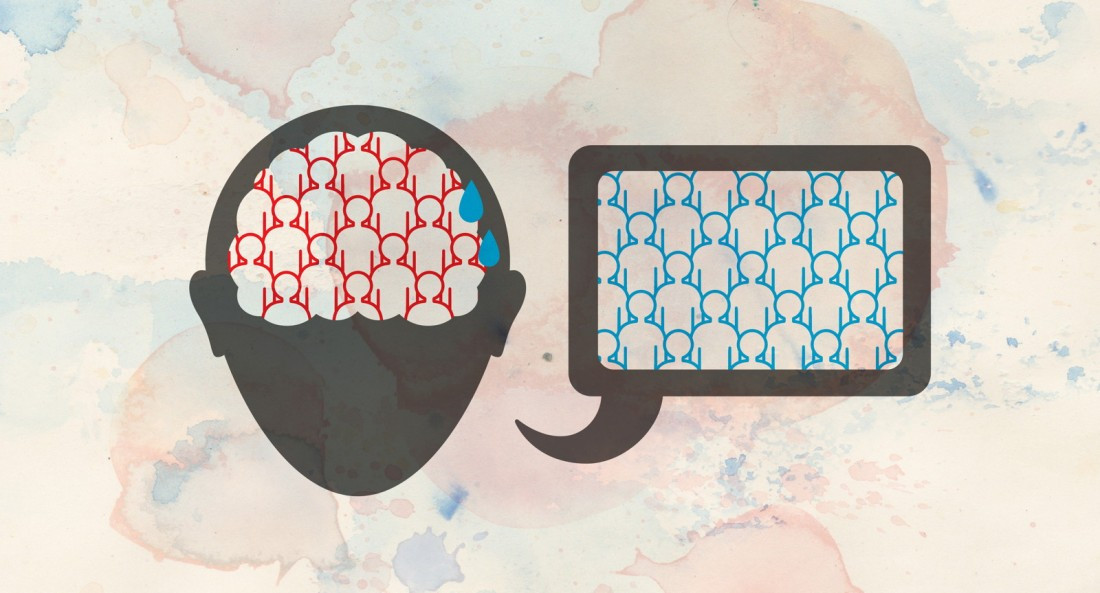Small Talk
On educating others
Nurturing the growth and well being of those we love is certainly a beautiful thing, but becomes problematic when it is perceived as the disproportionate responsibility of one person within a relationship.
The “yeah, but you’re better at talking about feelings” argument is particularly tricky because it traps people into a role by assuming what is socially conditioned and expected of them is actually natural to their character.
A gendered separation of spheres emerged during the industrial revolution. Men were given the public sphere and, with it, the impetus to participate in the workforce and political life. During this time, women’s role was increasingly limited to the private sphere – tending to domestic duties and ensuring the health of the household.
Along with unpaid domestic labour, women were tasked with maintaining the emotional health of the home and everyone in it. Women aren’t the only people who now perform, or have performed, emotional labour, but women are tied to the role of emotional caregivers through a socio-political history.
What happens when the cost of emotional labour becomes too heavy? It’s hard enough to drag our individual traumas and oppressions behind us as we attempt to get through the day. Many people are only working with a limited amount of psychological and social energy, and it’s okay to make decisions about where and how to distribute that energy.
Unbelievable though it may be, you don’t actually owe anyone your emotional labour – at the very least, not to those individuals who take advantage of your generosity (consciously or unconsciously) and don’t reciprocate.
But the question becomes increasingly complicated when we talk about activism and our role in the education of allies and others. What is our responsibility in educating others, particularly when it comes to our own oppression?
Often, marginalized people are expected to speak representatively for their whole group. We’re asked, maybe over text in the middle of night, to talk about the Jian Ghomeshi case as a survivor of sexual assault. Or, after enduring coded racial remarks, people of colour are asked to speak on the “state” of “their people” in a specific political or cultural context.
In these interactions, it’s paramount to remember that you’re not obligated to speak on behalf of anyone and that it’s actually inconsiderate of others to demand that of you. The expectation to step outside of our own trauma responses and triggers to educate others is unfair. But knowing this often doesn’t do much to alleviate the guilt we feel at being a bad model minority.
Intention is not necessarily a prerequisite to oppression, and having someone demand your time, energy, or knowledge about a topic can feel a lot like harassment. Here, it’s important to articulate our boundaries, and ask, firmly, that those be respected. Learning to say no gracefully comes later, with practice.
Dunja Kovacevic is a writer and co-founder of Dear Journal, a bi-annual print anthology that centres the lived experiences of women and non-binary individuals. Connect with them on Instagram: @dearjrnl.
Published in Volume 70, Number 19 of The Uniter (February 11, 2016)







